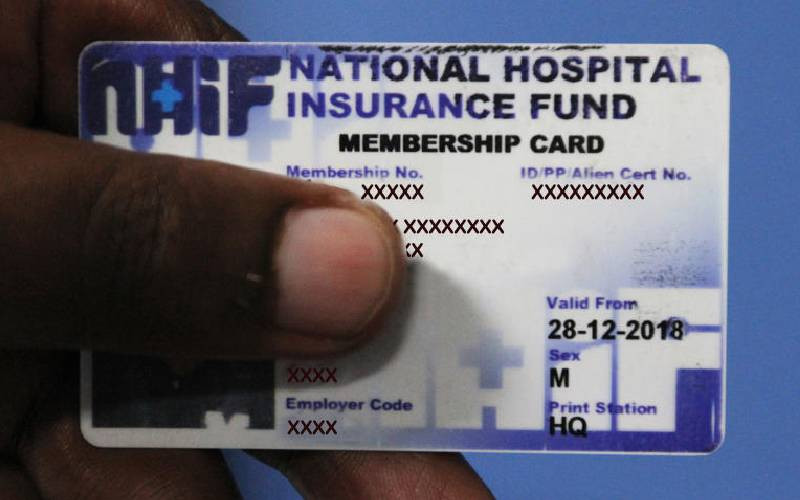
The health crisis continues to deepen following a decision by private hospitals to deny National Health Insurance Fund (NHIF) cardholders services without cash.
From Monday, the facilities asked patients to pay up-front over the failure of the Ministry of Health to offset Sh29 billion debt.
The hospitals, under the umbrella of the Rural Private Hospital Association for Kenya (RUPHA), accused the government of being non-committal about paying the debt.
The services affected include deliveries, surgeries, dialysis, eye care and cancer care among others.
RUPHA chairperson Brian Lishenga said failure to clear the debt has crippled hospital operations.
"Services continue on cash. No credit services. Because NHIF has breached its contract with providers," said Dr Lishenga.
Lishenga said NHIF beneficiaries requiring inpatient services have to pay cash, or, where available, use alternative insurance.
- SHA whistleblower has not been fired, Authority says
- Duale unveils Sh5.4b bailout and anti-fraud drive for Taifa Care rollout
- Government to pay Sh5.3 billion NHIF arrears to hospitals
- Private hospitals warn of collapse as Social Health Authority delays payments
Keep Reading
Patients in need of specialised care such as dialysis, eye care, cancer care or rehabilitation services will be requested to pay cash for consultation fees, laboratory testing fees, and procedure fees for any interventions.
Pregnant women also have to pay cash to deliver.
"NHIF patients on the Linda Mama scheme will have to pay cash or, where available, use alternative insurance," said Lishenga.
Lishenga said patients are free to seek reimbursement from NHIF, later.
"You may request your provider for a copy of your sales receipt and a duly filled reimbursement claim form that you can present to your NHIF branch should you wish to pursue reimbursement for the costs you incur," he advised.
However, the hospitals will continue to attend to NHIF beneficiaries in emergency cases.
Last week, the Kenya Association of Private Hospitals accused NHIF of breach of contract, saying the crisis has created financial strain on providers.
The Kenya Health Federation raised similar concerns, saying the impasse threatens the actualisation of Universal Health Coverage.
The federation's Chief Executive Officer Tim Theuri said about Sh6 billion is locked in the old e-claims for services offered, since 2017.
The federation noted that at least 57.7 per cent of the providers have not received capitation for managed schemes.
Last week, Health CS Susan Nakhumicha was pressed by the National Assembly Health Committee to explain why there were delays in paying monies owed to NHIF.
The CS attributed the delay to the late remittance of NHIF deductions by formal sector employers.
Nakhumicha explained that some enhanced scheme premiums are also not remitted to NHIF within the required time frame.
"Under the new health scheme, we shall have money from employees paid directly to the source.
"Initially, money would for example be sent to TSC, and then to the scheme but this will change."
 The Standard Group Plc is a multi-media organization with investments in media
platforms spanning newspaper print
operations, television, radio broadcasting, digital and online services. The
Standard Group is recognized as a
leading multi-media house in Kenya with a key influence in matters of national
and international interest.
The Standard Group Plc is a multi-media organization with investments in media
platforms spanning newspaper print
operations, television, radio broadcasting, digital and online services. The
Standard Group is recognized as a
leading multi-media house in Kenya with a key influence in matters of national
and international interest.











